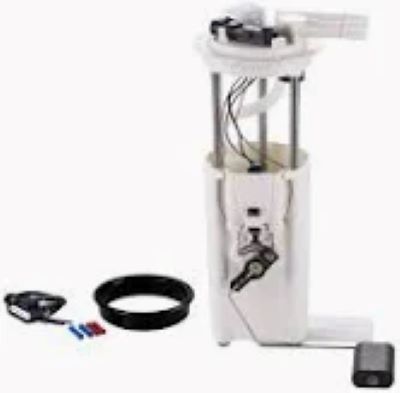How to avoid a fuel pump failure One of the best ways is to maintain your fuel tank at one-quarter full at a minimum. Because fuel pumps are cooled and lubricated by gasoline, running the car with almost no gas can cause the pump to quickly overheat and break down. The evidence suggests that drivers who consistently maintain a higher fuel-tank level, ideally above one quarter full, are able to increase the life of their fuel pump by up to 25 per cent. Although the pump usually lasts for approximately 100,000 miles, running on a low tank greatly accelerates its inability to function properly.
Using good fuel is also key to preventing fuel pump failure. Contaminants or debris in low-grade fuel can lead to a clogged fuel filter that forces the pump to work extra hard and ultimately fail prematurely. The American Petroleum Institute conducted a study which showed cars that always use premium or top-tier fuel have 30% fewer fuel system contamination issues. Proper fuel flow Keep It Flowing Due to a lack of turbos, TBI cars could get away with very long fuel filter replacement intervals (20-30,000 miles), but you'll want to replace them more frequently in your turbo Buick per the manufacturer's guidelines—typically every 30–40,000 miles.
To help prevent the fish from being heat-destroyed, it is also necessary to avoid long cooking in an excessivelyhigh temperature. A fuel pump's parts could be compromised if it experiences high heat. Ensuring that the vehicle is parked in shaded areas or garages during warmer seasons, will maintain a cooler fuel tank which can condition the pump to maintain its efficiency. Overheating is a worry in hot climates with 15% more fuel pump failures.

Regular maintenance on your vehicle is important, and you need to take a look at the electrical system as well. Problems can arise when faulty wiring or a blown fuse prevents electricity from reaching the fuel pump. Fuel pump relay and electrical connectionCheck the fuel pump relay once a yearInspect all of the electrical connections on your vehicle annually to make sure none are loose or corroded. A technician said, “90% of fuel pump failures are preventable with regular preventative maintenance prevention is definitely more cost effective than cure.
Fuel pump lifespan is greatly dependent on good pressure control and regulation. This is a component whose sole purpose is to control the flow of fuel that allows the car to generate power, bottleneck this output and the gasoline delivering unit [fuel pump] will demand to much energy trying to squish too much gas and eventual fail or simply weaken over time causing other issues. It is checking to see if the fuel pump has enough pressure (typically 40-55 PSI on most vehicles) and it is able to maintain this pressure.
Last but not least, adhering to the manufacturer's service schedule for fuel system maintenance can save the fuel pump and cause catastrophic failure. This includes replacing the fuel pump itself in a timely manner if it is nearing the end of its service life. Through preventative maintenance, the following statistic states that overall repair costs may drop up to 50%, viewing cars as an investment and not a disposable item among other benefits. Fixing a small issue before it becomes something major pay off much more than changing a fuel pump.
Visit Fuel Pump to learn more about the newest fuel pump technology and solutions that guarantee your vehicle's fuel system stays in tiptop shape. Taking care of these details regularly will stop most fuel pump failures in their tracks.